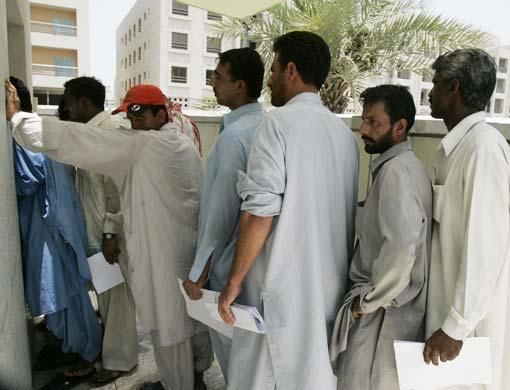Abu Dhabi: Ensuring those with illegal status are arrested has always been projected as a means to ensure safety and security in society, but being an illegal resident has a deep psychological impact as well, say experts.
"Although the psychological impact of residing and working illegally in the country is hardly discussed, it is in reality a factor affecting the mental health and well-being of a person," said Dr Sa'ad Al Rifai, a psychiatrist working with Abu Dhabi Police.
The World Health Organisation defines mental health as a state of well-being in which eivery individual realises his or her own potential. The state of a person's well-being not only refers to the absence of disease.
Dr Al Rifai says that it is the feeling of guilt which causes maximum psychological damage to people who stay illegally in the country.
"Working illegally results in immense mental stress on the people themselves. They are constantly worrying about being caught by the authorities and are very often paid extremely low wages. This negatively affects the productivity of people."
It is a typical reaction of the human mind to uncertain conditions, Dr Al Rifai said. "Illegal workers may resort to crime or sometimes become mentally ill," he added.
Confined to home
Senior police officials as well as labour ministry officials have said the amnesty period declared by the government was a boon to illegal immigrants.
Speaking to Gulf News, Aysha M, an Indian housemaid, said she was mostly confined to her bedroom that she shared with two others to avoid being caught by labour inspectors.
"Frankly, working illegally as a housemaid allowed me to make more money but there was no question of getting peace of mind."
Although she had a valid visa she never worked for her sponsor.
"I paid Dh7,000 for a visa from a sponsor, who works in a government department, at Al Ain. He was introduced to me by a man from my home country. I worked in four different houses in Abu Dhabi at the same time.
"Based on the number of hours, the salary differed. It was roughly Dh15 per hour plus taxi fare. But apart from financial gain, there was no life for me. I hardly went out expect to work," she said.
Worried about the campaigns after the amnesty, Aysha said she approached her sponsor for a job.
"My sponsor agreed to hire me and now I'm a much happier person...although I make less money than before there is no running from one work place to other or the fear of being caught."
Mohammad Shahada, a factory worker, said that he suffered a lot during his illegal stay.
"When my visit visa expired I had hopes of landing a job within a week. But this did not happen. For months I continued staying illegally until it was too late to pay the fine and legalise my stay. I couldn't even visit my sick mother. Making use of the amnesty, I found another job and today I'm happy because I m free from bother."
Employer's view: 'I suffered sleepless nights'
A sponsor, who wished to remain anonymous, said that for two years he suffered because he employed several illegal workers.
"I had sleepless nights and every time my phone received a call from an unknown number I would think that maybe one of my employees had been arrested. I was scared about my future. I closed down my business and deported all the employees during the amnesty", he said, adding that he would never think of hiring illegals again.




